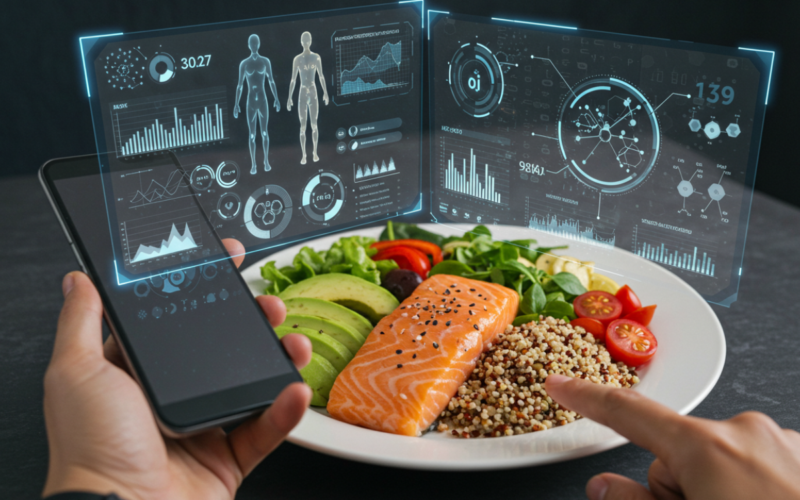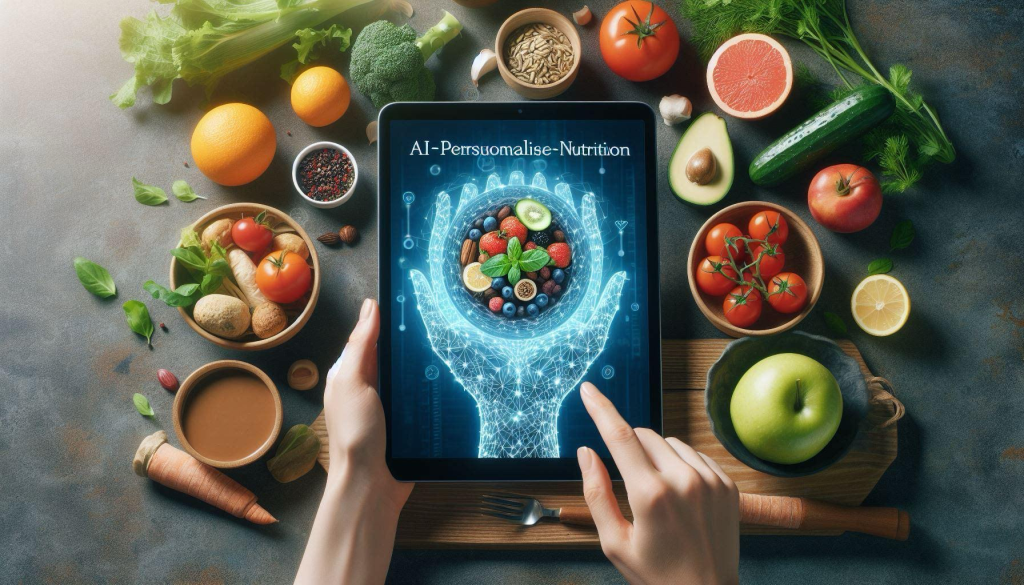Choosing the right school for your child is one of the most important decisions you will make as a parent. In the modern educational landscape, health and nutrition are taking center stage alongside academics. Schools are now using smart technologies like AI-Powered Nutritional Education to enhance student wellness and support lifelong healthy habits.
Many parents in Dehradun are increasingly looking for schools that not only focus on academic excellence but also on health and lifestyle education. Verified Campus, the best school listing portal in Dehradun, enables parents to evaluate schools based on health-centric initiatives like nutrition programs powered by AI.
What is AI-Powered Nutritional Education?
AI-Powered Nutritional Education refers to the use of artificial intelligence to teach students about healthy eating habits, monitor their dietary patterns, and provide personalised nutrition plans. These AI systems analyse individual data such as age, activity level, body metrics, allergies, and even cultural food preferences to recommend balanced meals and educate students about healthy choices.
This approach goes beyond traditional textbook learning by integrating real-time data, interactive apps, and personalised guidance, making nutrition education more engaging and effective for school-aged children.

Why AI-Powered Nutritional Education Is Needed in Schools
Childhood nutrition is directly linked to academic performance, concentration, energy levels, and long-term health. Yet, many children in India suffer from either undernutrition or are increasingly exposed to unhealthy processed food.
AI-Powered Nutritional Education is needed in schools for several reasons:
-
To create awareness about healthy food choices from an early age.
-
To support students with specific dietary needs or allergies.
-
To reduce malnutrition and obesity rates among schoolchildren.
-
To personalise learning based on student health data.
-
To help schools monitor the nutritional quality of meals served in canteens.
AI helps in scaling these efforts with accuracy and real-time insights.
Key Features of AI-Powered Nutritional Education Platforms
Modern AI-powered nutritional Education platforms are designed to work seamlessly in school environments. Some of their key features include:
1. Personalised Meal Planning
AI systems generate individualised meal recommendations based on the student’s body type, activity level, and health goals.
2. Nutrient Tracking Tools
Students can input their meals into an app that tracks calories, vitamins, and other nutrients, giving them insights into their daily intake.
3. Interactive Learning Modules
Gamified lessons, quizzes, and real-life scenarios teach students how to make informed food choices.
4. Smart Canteen Integration
Some platforms integrate with school kitchens or canteens to ensure that meals served meet nutritional standards set by the AI.
5. Parent and Teacher Dashboards
These dashboards allow adults to view student progress and dietary habits, making collaboration possible between home and school.
Benefits of AI-Powered Nutritional Education for Students
Schools implementing AI-powered nutritional Education programs have seen significant improvements in student wellness and behaviour. The benefits include:
-
Improved Concentration: Balanced diets lead to better focus and cognitive performance in classrooms.
-
Healthier Eating Habits: Students learn to avoid processed food and choose fresh, wholesome options.
-
Obesity Management: Personalised meal tracking helps students maintain a healthy weight.
-
Better Sports Performance: Active students benefit from AI-driven recommendations tailored to their athletic needs.
-
Early Detection of Deficiencies: AI can alert caregivers about potential vitamin or mineral deficiencies based on input data.
These platforms help foster a generation of healthier, more informed students.

How Schools Are Integrating AI-Powered Nutritional Education
Leading schools are incorporating AI-powered nutritional Education in various creative ways:
-
Curriculum Integration: Nutrition modules powered by AI are included in science or health classes.
-
Wellness Weeks: Schools dedicate certain weeks to focused learning on food and fitness using AI-driven content.
-
Digital Lunch Cards: Students use smart cards to log what they eat at school, which is analysed by the AI system.
-
Parent Workshops: Parents are taught how to use AI platforms to monitor or complement their child’s meals at home.
-
Reward Programs: Schools incentivise healthy eating through point systems and recognition, managed by AI algorithms.
This integration ensures that nutrition is not just a side topic but a core part of student life.
Challenges in Adopting AI-Powered Nutritional Education
While AI-Powered Nutritional Education is transformative, it does come with certain challenges:
-
Cost of Implementation: AI systems and supporting devices can be expensive for schools with limited budgets.
-
Data Privacy: Handling student health and dietary data requires strong security protocols.
-
Digital Access: Not all students may have access to smartphones or the internet at home to use the platform consistently.
-
Staff Training: Teachers and kitchen staff need to be trained to understand and apply AI recommendations.
-
Cultural Barriers: Dietary preferences vary widely across regions, and AI systems must be localised for relevance.
Addressing these issues requires collaboration between schools, government bodies, and technology providers.
What Parents Should Look for in Schools
As a parent, evaluating a school’s approach to student health is as important as academic rigour. When considering AI-Powered Nutritional Education, ask the following:
-
Does the school offer personalised nutrition or wellness programs?
-
Are digital tools used to teach students about healthy eating?
-
Is the school canteen AI-integrated or guided by nutritional standards?
-
Are parents informed or involved in their child’s dietary tracking?
-
How is data privacy managed for student health information?
These questions will help parents identify forward-thinking schools focused on total child development.

The Future of AI-Powered Nutritional Education
As technology advances, the scope of AI-powered nutritional Education will expand. Expected trends include:
-
Integration with Wearables: Smartwatches and fitness bands will sync with nutrition apps for deeper insights.
-
AI Health Coaches: Virtual assistants will guide students through healthy food choices in real-time.
-
Voice Recognition for Younger Students: Kids can log meals just by speaking, making the platform more accessible.
-
Real-Time Feedback: AI will alert students and parents immediately about unhealthy patterns.
-
Cross-Curriculum Use: AI-based nutrition education will be used in biology, math, and physical education classes.
These developments will make AI nutrition tools even more essential in tomorrow’s schools.
Conclusion: Choose Schools That Value Health and Technology
Modern education isn’t just about textbooks and exams—it’s about preparing children for a balanced and healthy life. AI-Powered Nutritional Education is one of the most powerful tools to guide students toward better eating habits, body awareness, and long-term wellness.
For parents in Dehradun seeking schools that offer such innovative programs, Verified Campus, the best school listing portal in Dehradun, is your trusted ally. It helps you compare institutions not only on academics but also on how they incorporate technology for holistic student development.
Make an informed choice. Choose a school that nourishes both the mind and the body, with the smart support of AI-Powered Nutritional Education.


